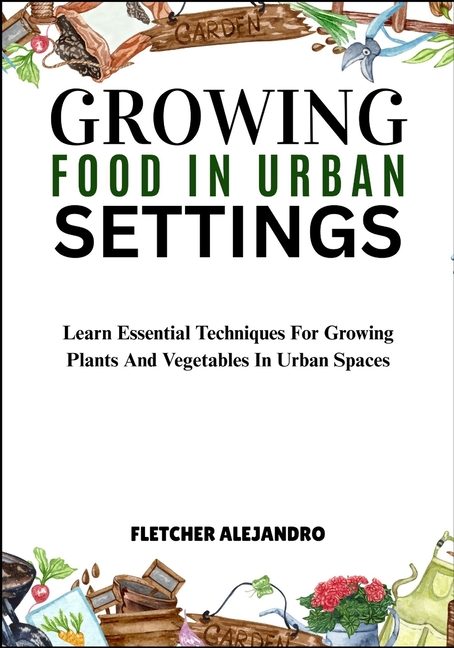Description
Urban gardening offers a wide range of benefits, particularly in three key areas: health, sustainability, and community. These advantages make it more than just a trend-it's a meaningful practice that contributes to a better quality of life in cities.
1. Health Benefits:
- Access to Fresh Food: Urban gardening provides fresh, pesticide-free fruits, vegetables, and herbs, improving nutrition and food security.
- Physical Activity: Gardening is a form of low-impact exercise that promotes physical health, reduces stress, and supports mental well-being.
- Mental Health: Being in touch with nature, even in small urban spaces, has been shown to reduce anxiety, depression, and improve mood.
2. Environmental Sustainability:
- Reduced Carbon Footprint: Growing food locally cuts down on transportation emissions and packaging waste.
- Improved Air Quality: Plants filter pollutants and produce oxygen, making urban environments healthier.
- Waste Reduction: Composting organic waste in urban gardens reduces landfill use and returns nutrients to the soil.
- Climate Resilience: Urban greenery can reduce the urban heat island effect and help manage stormwater runoff.
3. Community Engagement:
- Social Connection: Community gardens bring people together across cultures and age groups, fostering cooperation and friendship.
- Educational Opportunities: Urban gardens can teach children and adults about agriculture, ecology, and healthy eating.
- Empowerment: Growing food empowers individuals and communities to take control of their food sources and environment.
Urban gardening is a powerful tool that delivers numerous benefits-enhancing personal health, promoting environmental sustainability, and strengthening community bonds. As urban spaces become more densely populated, integrating gardens into the cityscape offers a practical and meaningful way to improve urban life.
1. Health Benefits:
- Access to Fresh Food: Urban gardening provides fresh, pesticide-free fruits, vegetables, and herbs, improving nutrition and food security.
- Physical Activity: Gardening is a form of low-impact exercise that promotes physical health, reduces stress, and supports mental well-being.
- Mental Health: Being in touch with nature, even in small urban spaces, has been shown to reduce anxiety, depression, and improve mood.
2. Environmental Sustainability:
- Reduced Carbon Footprint: Growing food locally cuts down on transportation emissions and packaging waste.
- Improved Air Quality: Plants filter pollutants and produce oxygen, making urban environments healthier.
- Waste Reduction: Composting organic waste in urban gardens reduces landfill use and returns nutrients to the soil.
- Climate Resilience: Urban greenery can reduce the urban heat island effect and help manage stormwater runoff.
3. Community Engagement:
- Social Connection: Community gardens bring people together across cultures and age groups, fostering cooperation and friendship.
- Educational Opportunities: Urban gardens can teach children and adults about agriculture, ecology, and healthy eating.
- Empowerment: Growing food empowers individuals and communities to take control of their food sources and environment.
Urban gardening is a powerful tool that delivers numerous benefits-enhancing personal health, promoting environmental sustainability, and strengthening community bonds. As urban spaces become more densely populated, integrating gardens into the cityscape offers a practical and meaningful way to improve urban life.
Last updated on
Product Details
- Jun 2, 2025 Pub Date:
- 9798286289639 ISBN-10:
- 9798286289639 ISBN-13:
- English Language




